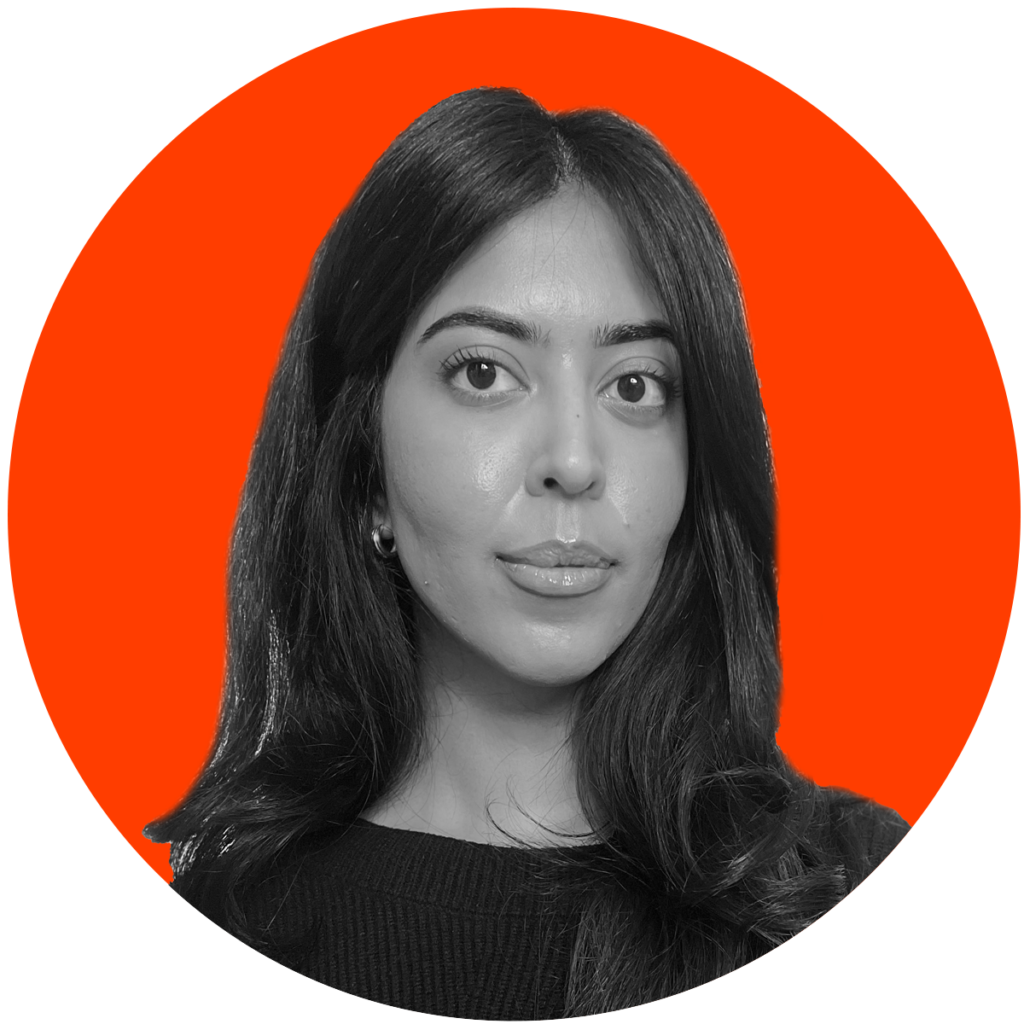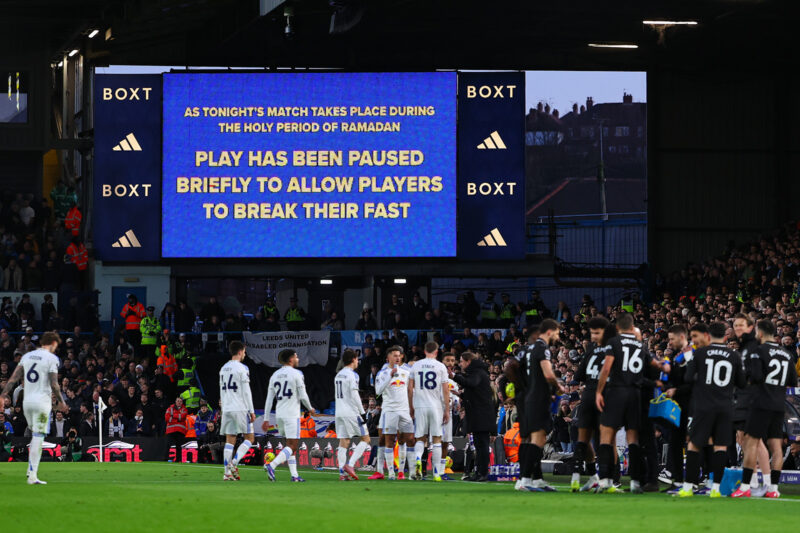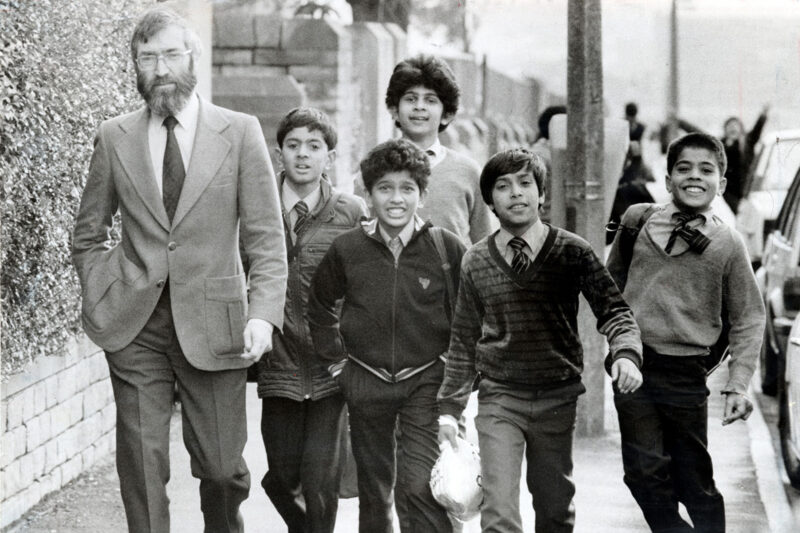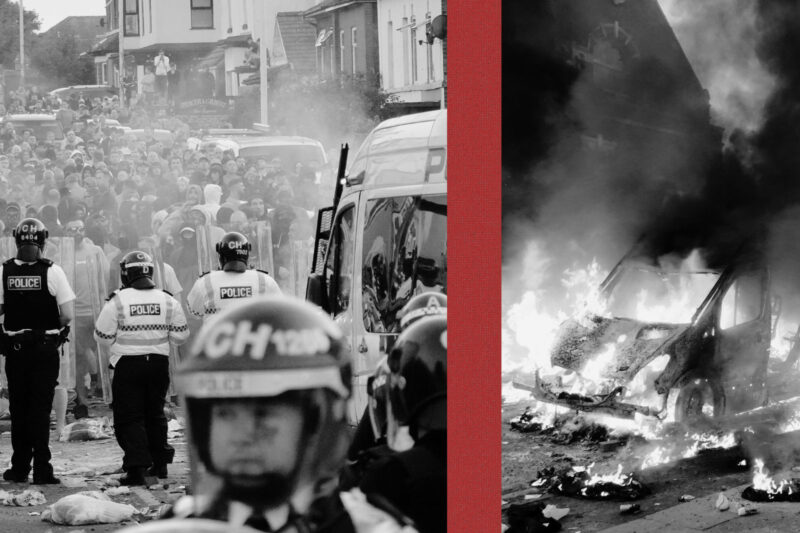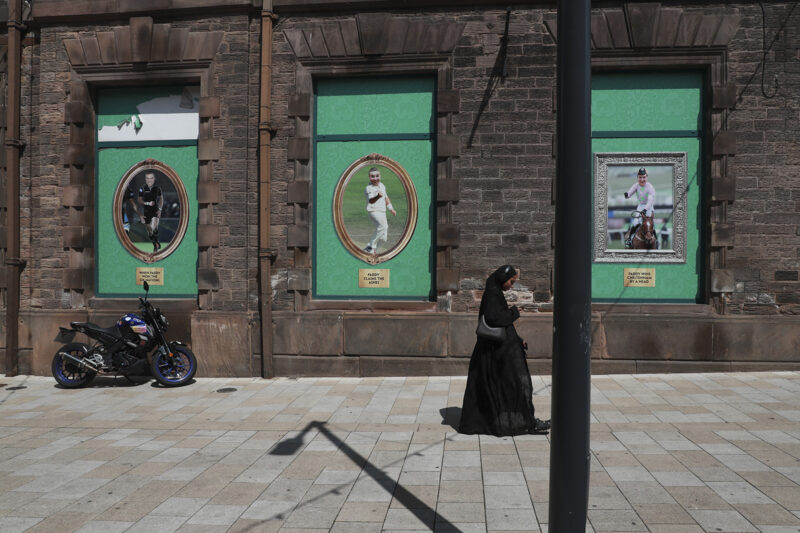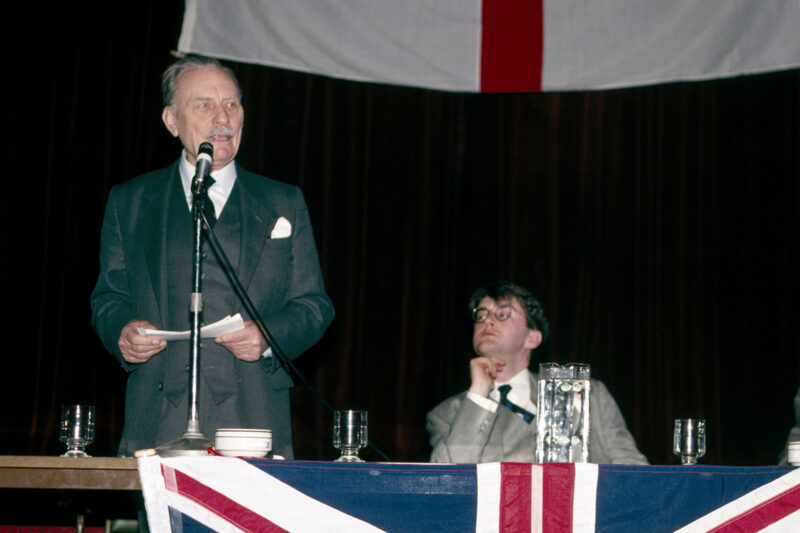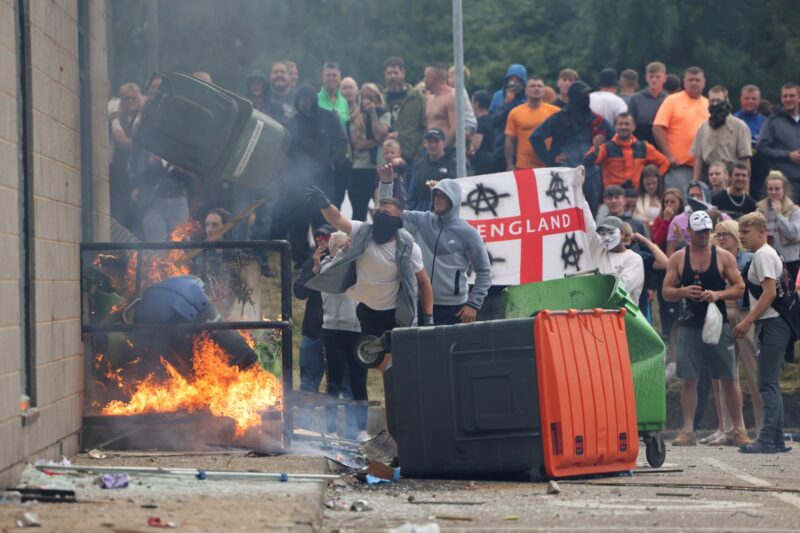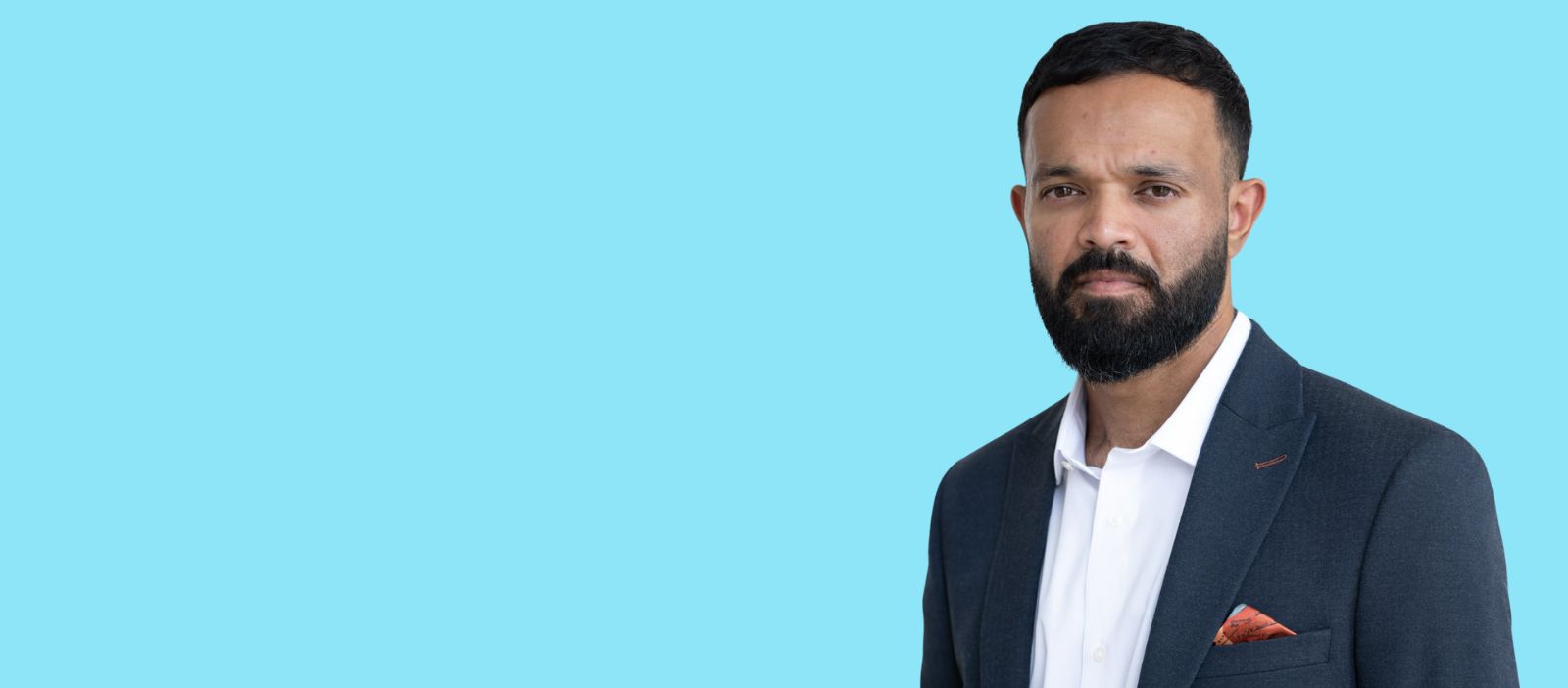
Azeem Rafiq Q&A: ‘British Muslims are very much a political football for the likes of Suella Braverman’
‘I became the youngest ever Yorkshire captain in 2012, yet a few months later I was standing on a balcony ready to take my own life,’ says Azeem Rafiq. Photo by Jo Hale/WireImage
The cricketer’s new memoir recounts why he first spoke out about racism in sport, the impact it has had on his family and his hopes for the future
Azeem Rafiq, 33, is a British-Pakistani cricketer who, in 2012, became Yorkshire County Cricket Club’s (YCCC) youngest ever captain at 21, and the first of South Asian heritage.
Rafiq played for YCCC over two spells, from 2008 to 2014 and 2016 to 2018. He made national headlines in 2020 after giving several interviews about his career and alleging there was a culture of “discrimination and harassment on the grounds of race” at YCCC. He claimed that South Asian players were regularly targeted by ethnic slurs.
Rafiq’s allegations sparked several investigations and inquiries by YCCC, the England and Wales Cricket Board (ECB) and parliament. In an emotional testimony before the Digital, Culture, Media and Sport select committee in November 2021, Rafiq claimed that the club’s treatment of him had left him suicidal. In December that year, YCCC announced that all members of its coaching team, including head coach Andrew Gale and director of cricket Martyn Moxon, had departed from the crisis-ridden club.
Rafiq, who has since moved to Dubai with his wife and their two young children, has written about his experiences in a new book, It’s Not Banter, It’s Racism: What Cricket’s Dirty Secret Reveals About Our Society. His memoir details his entry into the sport, the loss of his stillborn son in 2018, and the abuse he has faced since speaking out about racism in cricket.
This interview has been edited for length and clarity.
Why did you decide to write the book?
I wanted to give people more clarity on why I spoke out. From the initial interview that started everything to the hearing at the select committee, none of it was planned.
I never anticipated how big it would get. I was just a normal person, pouring my heart out. I was broken. I didn’t want to fight — I just stood up for myself, and in doing that I ended up speaking up for a lot of people because my experiences are not unique in any way, shape or form.
The book tackles many uncomfortable topics, including racism, mental health, grief and baby loss. I hope that readers can try to put themselves in my shoes and to live some of those moments with me.
What impact do you hope the book will have?
I hope it can inspire people to make real, structural change and find long-term solutions to racism, because unfortunately things haven’t improved anywhere near as much as they should have. As British Muslims, we are still being targeted. We are very much a political football for the likes of Suella Braverman and many others.
I want people to make sure they do whatever is in their control to make sure our kids don’t get called “Paki”, that our kids are allowed the same respect and opportunities as a white person would have.
In the book, you describe desperately trying to “fit in” at YCCC and the toll this took on you. Were you conscious of the racism you were experiencing?
I became the youngest ever Yorkshire captain in 2012, yet a few months later I was standing on a balcony ready to take my own life.
Subconsciously, it had been affecting me for a long time, but I put it down to anything but racism. I didn’t want to accept it, because once you do it becomes quite traumatic.
I also knew that the minute I said I had been racially abused it would impact my career and I would lose opportunities. I finally reported the way I was being treated in 2017, but even then I reported it as bullying.
It didn’t properly hit me until I lost my son in 2018, and the way I was treated around that. That’s when I knew I needed to make sure that it was brought to the surface, but little did I know that it would come out the way it did.
You also express your disappointment at the lack of support from sections of the South Asian community. What do you think we need to do better?
This part of my experience hurts more than anything else. I still can’t quite understand it. I’ve had some amazing support, but most of that support did not come from my own community.
My experience has shown me that institutional racism does not happen without people of colour. There are lots of leaders within our community who have used the community to get into the room, but don’t represent us once they are there.
The political spectrum of recent years is a very good example of that. We have had arguably the most representative government, yet there has been so much damage done to minority communities through these people.
This chapter is my call to action to our young people. We have to speak up, we have to be forceful, we have to ask questions, and we have to make sure we are united, because every fight against any form of discrimination is the same fight.
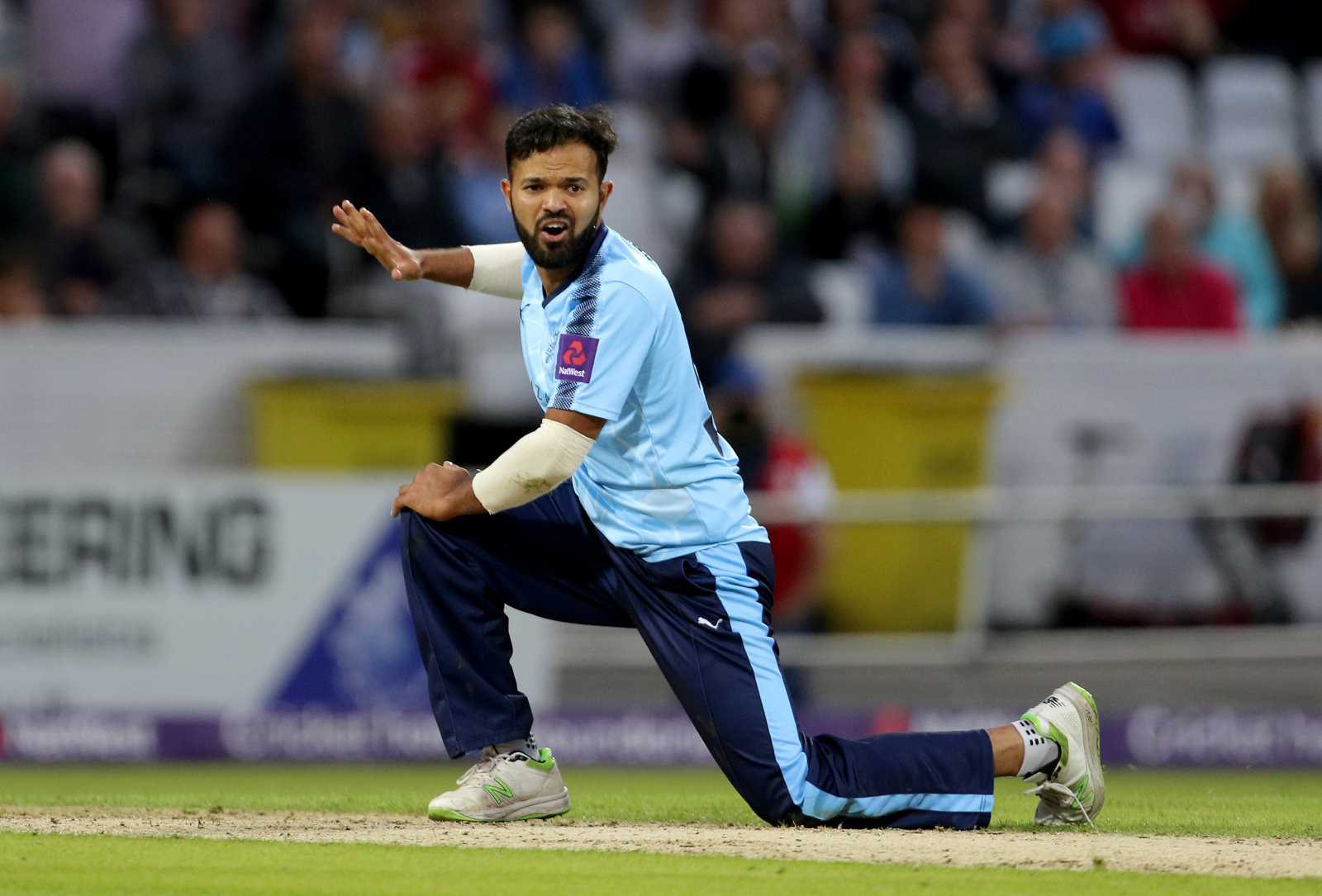
Which institutions do you hold responsible for what you have been through?
Sadly, no matter who has come into contact with this, they have been incompetent at best and institutionally racist at worst.
It starts with the YCCC, the ECB, and the media. If it wasn’t for some parts of the media, I wouldn’t have been heard the way I was. But if it wasn’t for others, I also wouldn’t have been abused and attacked the way I have been.
How did you come to the decision to leave the UK and move to Dubai?
It was really difficult, but it didn’t feel like I had a choice. My family home was attacked on multiple occasions, and there was consistent online abuse. It was affecting everyone’s sanity, and the police were not helpful.
My father was one of eight siblings and the only breadwinner. In 2001 he picked up his whole family and moved us out of Pakistan for safety reasons. Over two decades later, in 2022, I had to do the same.
What impact has speaking out had on your family?
It has impacted us in so many ways that I’ve not spoken about. My dad suffers from chronic obstructive pulmonary disease. I believe the strain of my speaking out and the move to Dubai has accelerated the end of his life, and that’s something I am going to have to live with.
My two young children have had a father who has been missing for the last four years. My daughter was born in November 2020 — she has only ever seen her dad in pain and struggle.
The one thing that gives me comfort is that Allah does everything for a reason and he has given me this responsibility. Allah will look after my family and we will be fine, but it doesn’t take away from the fact that it has been an incredibly traumatic time.
What is your new life like in Dubai?
Dubai has been a gift. I’ve been given a golden visa, which means we can stay here for 10 years. We’ve found a community here that has been extremely supportive and welcoming. I know Dubai is not for everyone, but I love being able to walk through the mall and not feel like the odd one out. There’s a feeling of comfort and peace that comes with that.
It’s Not Banter, It’s Racism: What Cricket’s Dirty Secret Reveals About Our Society is available now.
In the UK or Ireland, Samaritans can be contacted by phone on 116123, a free service. You can find other ways of contacting Samaritans here.
 Newsletter
Newsletter

